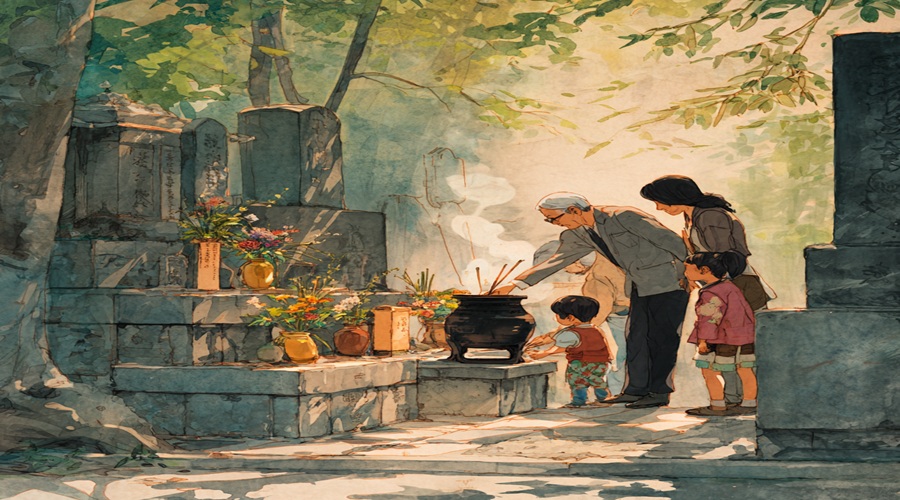
Grave visiting
Japanese Name:
墓参り
Romaji Name:
hakamairi
Description
↓↓
Hakamairi refers to the Japanese tradition of visiting and paying respects at the graves of deceased family members or ancestors. The term is derived from "haka", which means grave, and "mairi", which means to visit or to go to. Therefore, hakamairi means "to visit the grave" or "grave visiting."
History
↓↓
Visiting graves is an ancient practice found in many cultures to honor deceased family members and ancestors.
In Japan, this tradition is closely linked to Buddhist customs and seasonal observances such as Obon.
During the Edo period (17th–19th century), families commonly visited graves during specific times of the year to clean tombstones and offer prayers.
Grave offerings often include flowers, incense, food, and water, symbolizing respect and remembrance.
This practice helps maintain family ties and spiritual connections across generations.
Today, grave visiting remains an important cultural ritual in Japan and worldwide, reflecting reverence for ancestors and the deceased.